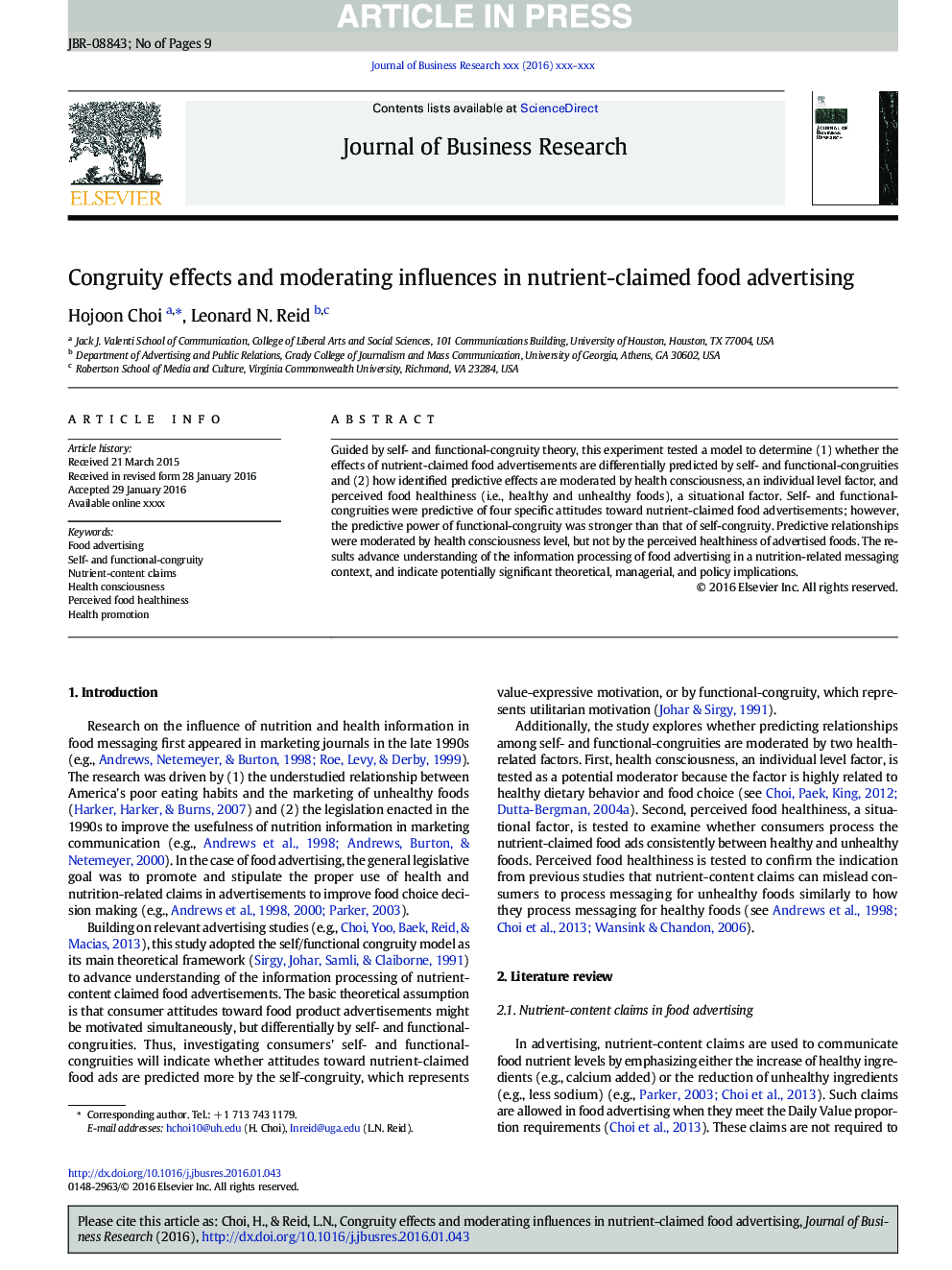| Article ID | Journal | Published Year | Pages | File Type |
|---|---|---|---|---|
| 10492511 | Journal of Business Research | 2016 | 9 Pages |
Abstract
Guided by self- and functional-congruity theory, this experiment tested a model to determine (1) whether the effects of nutrient-claimed food advertisements are differentially predicted by self- and functional-congruities and (2) how identified predictive effects are moderated by health consciousness, an individual level factor, and perceived food healthiness (i.e., healthy and unhealthy foods), a situational factor. Self- and functional-congruities were predictive of four specific attitudes toward nutrient-claimed food advertisements; however, the predictive power of functional-congruity was stronger than that of self-congruity. Predictive relationships were moderated by health consciousness level, but not by the perceived healthiness of advertised foods. The results advance understanding of the information processing of food advertising in a nutrition-related messaging context, and indicate potentially significant theoretical, managerial, and policy implications.
Related Topics
Social Sciences and Humanities
Business, Management and Accounting
Business and International Management
Authors
Hojoon Choi, Leonard N. Reid,
